Related Research Articles
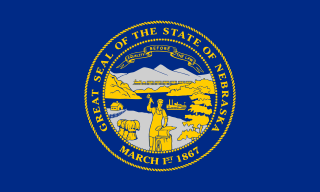
Nebraska is a state in the Midwestern region of the United States. It is bordered by South Dakota to the north; Iowa to the east and Missouri to the southeast, both across the Missouri River; Kansas to the south; Colorado to the southwest; and Wyoming to the west. It is the only triply landlocked U.S. state.

Lee Oscar Lawrie was an American architectural sculptor and a key figure in the American art scene preceding World War II. Over his long career of more than 300 commissions Lawrie's style evolved through Modern Gothic, to Beaux-Arts, Classicism, and, finally, into Moderne or Art Deco.
Valdimer Orlando Key Jr. was an American political scientist known for his empirical study of American elections and voting behavior. He taught at Johns Hopkins University and Harvard.
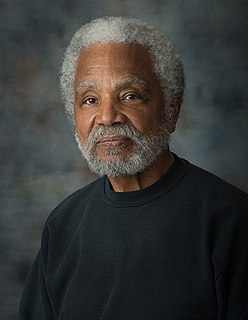
Ernest William Chambers is an American politician and civil rights activist who represented North Omaha's 11th District in the Nebraska State Legislature from 1971 to 2009 and again from 2013 to 2021. He could not run in 2020 due to term limits.

Alan John Dixon was an American politician and member of the Democratic Party who served in the Illinois General Assembly from 1951 to 1971, as the Illinois Treasurer from 1971 to 1977, as the Illinois Secretary of State from 1977 to 1981 and as a U.S. Senator from 1981 until 1993.
The Lincoln Journal Star is an American daily newspaper that serves Lincoln, Nebraska, the state capital and home of the University of Nebraska. It is the most widely read newspaper in Lincoln and has the second-largest circulation in Nebraska. The paper also operates a commercial printing unit.
Hartley Burr Alexander, PhD (1873–1939), was an American philosopher, writer, educator, scholar, poet, and iconographer.
John F. Marszalek is an American historian. He is a native of Buffalo, New York and taught at Canisius College, Gannon University, and Mississippi State University, where he became the William L. Giles Distinguished Professor in 1994. After twenty-nine years as a professor, Marszalek retired in 2002 to become a Giles Distinguished Professor Emeritus.
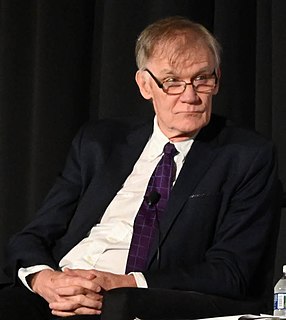
David William Blight is the Sterling Professor of History, of African American Studies, and of American Studies and Director of the Gilder Lehrman Center for the Study of Slavery, Resistance, and Abolition at Yale University. Previously, Blight was a professor of History at Amherst College, where he taught for 13 years. He has won several awards, including the Bancroft Prize and Frederick Douglass Prize for Race and Reunion: The Civil War in American Memory, and the Pulitzer Prize and Lincoln Prize for Frederick Douglass: Prophet of Freedom. In 2021 he was elected to the American Philosophical Society.
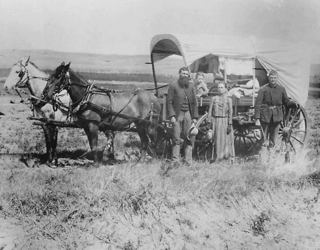
The history of the U.S. state of Nebraska dates back to its formation as a territory by the Kansas–Nebraska Act, passed by the United States Congress on May 30, 1854. The Nebraska Territory was settled extensively under the Homestead Act of 1862 during the 1860s, and in 1867 was admitted to the Union as the 37th U.S. state. The Plains Indians were descendants of succeeding cultures of indigenous peoples in Nebraska who have occupied the area for thousands of years and still going on.
Germans in Omaha immigrated to the city in Nebraska from its earliest days of founding in 1854, in the years after the Revolutions of 1848 in the German states. They continued to immigrate to Omaha in large numbers later in the 19th century, when many came from Bavaria and southern Germany, and into the early 20th century. Germans created and maintained a high cultural, social and political profile locally and nationally through the 1930s. In 1890, Germans comprised 23% of Omaha's population. By 1910, 57.4% of Omaha's total population of more than 124,000 identified as being of German descent.
James Charles Dahlman, also known as Jim Dahlman, Cowboy Jim and Mayor Jim, was elected to eight terms as mayor of Omaha, Nebraska, serving the city for 20 years over a 23-year-period. A German-American and an agnostic, Dahlman grew up in a ranching area and started working as a Texas cowboy. He was elected as a county sheriff and small town mayor in western Nebraska before moving to Omaha.
Valentin J. Peter (1875–1960) was a German-American publisher of a German language newspaper called the Omaha Tribüne in Omaha, Nebraska. He had immigrated to the United States from Bavaria in 1889. Active in the ethnic German community in the city, he became founding president of the Nebraska chapter of the National German-American Alliance.

Legislative elections were held in El Salvador between 12 and 14 January 1932. The government had promised free and fair elections and invited all parties, including the Communist Party of El Salvador, to compete. However, voters had to be registered in their municipalities alongside their party, thus giving the government a list of Communist Party members. In the preceding municipal elections on 3–5 January, the Communists won several predominantly indigenous municipalities in the west of the country. However, the Maximiliano Hernández Martínez government cancelled the planned second round of the legislative and municipal elections due to the Communist success. The conservative Progressive Fraternal Party boycotted the elections in San Salvador on the grounds of electoral fraud.
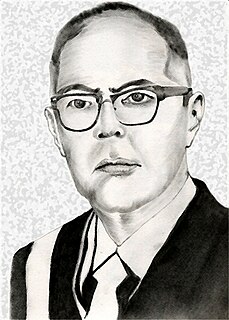
General elections were held in Honduras on March 28, 1971. Voters went to the polls to elect a new President of the Republic and a new Congress. The two main parties, the National Party and Liberal Party, had agreed before the election to split the Congressional seats equally between them, with each party being awarded 32 of the 64 seats. Additional one seat was to be allocated to the winner of the presidential elections as the president was entitled to one seat in parliament, while both parties were to be equally represented in the Supreme Court in all state institutions including the Government. Ramón Ernesto Cruz Uclés of the National Party won the presidential election with 53% of the vote. Approximately 40% out of total of around 900,000 voters abstained from voting at the elections. Some of the major topics at the elections was the issue of commitment to continued participation in the Central American Common Market and approach to the relations with El Salvador after the Football War.
Margaret Davis Jacobs is an American historian. She is the Chancellor's Professor of History and Charles Mach Professor at the University of Nebraska–Lincoln.

Charles Moore (1855-1942) was an American journalist, historian and city planner.

The 2018 United States Senate election in Nebraska took place on November 6, 2018, to elect a member of the United States Senate to represent the state of Nebraska. Incumbent Republican Deb Fischer was re-elected to a second term against Lincoln city councilwoman Jane Raybould and Libertarian candidate Jim Schultz. The election comprises part of the 2018 U.S. Senate elections.

The 1924 Nebraska gubernatorial election was held on November 4, 1924, and featured former state Senator Adam McMullen, a Republican, defeating Democratic nominee, former state Representative John N. Norton, and Progressive nominee, Omaha City Commissioner Dan B. Butler.
This article documents the political career of Abraham Lincoln from the end of his term in the United States House of Representatives in March 1849 to the beginning of his first term as President of the United States in March 1861.
References
- ↑ "Frederick C. Luebke, Papers". University of Nebraska–Lincoln. Retrieved June 13, 2020.
- ↑ Directory of American Scholars, 6th ed. (Bowker, 1974), Vol. I, p. 389.
- ↑ Luebke, Frederick C. (1971). Ethnic Voters and the Election of Lincoln. Lincoln: University of Nebraska Press. ISBN 0-8032-0796-4.
- ↑ "Obituary | Frederick C. Luebke". news.unl.edu. Retrieved January 14, 2022.